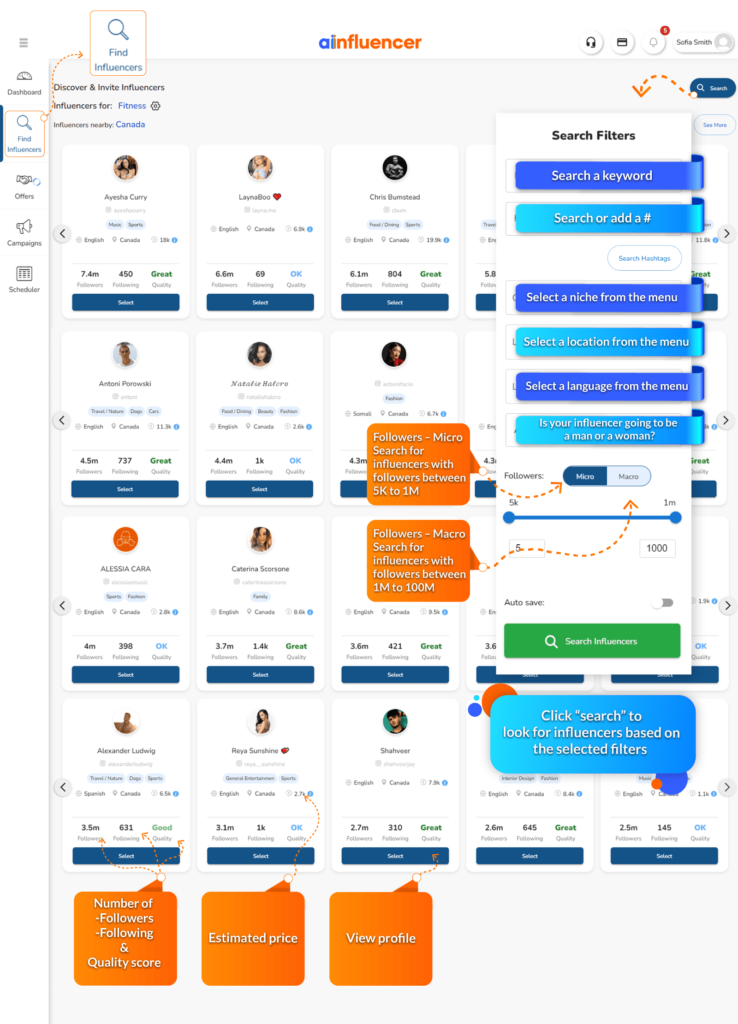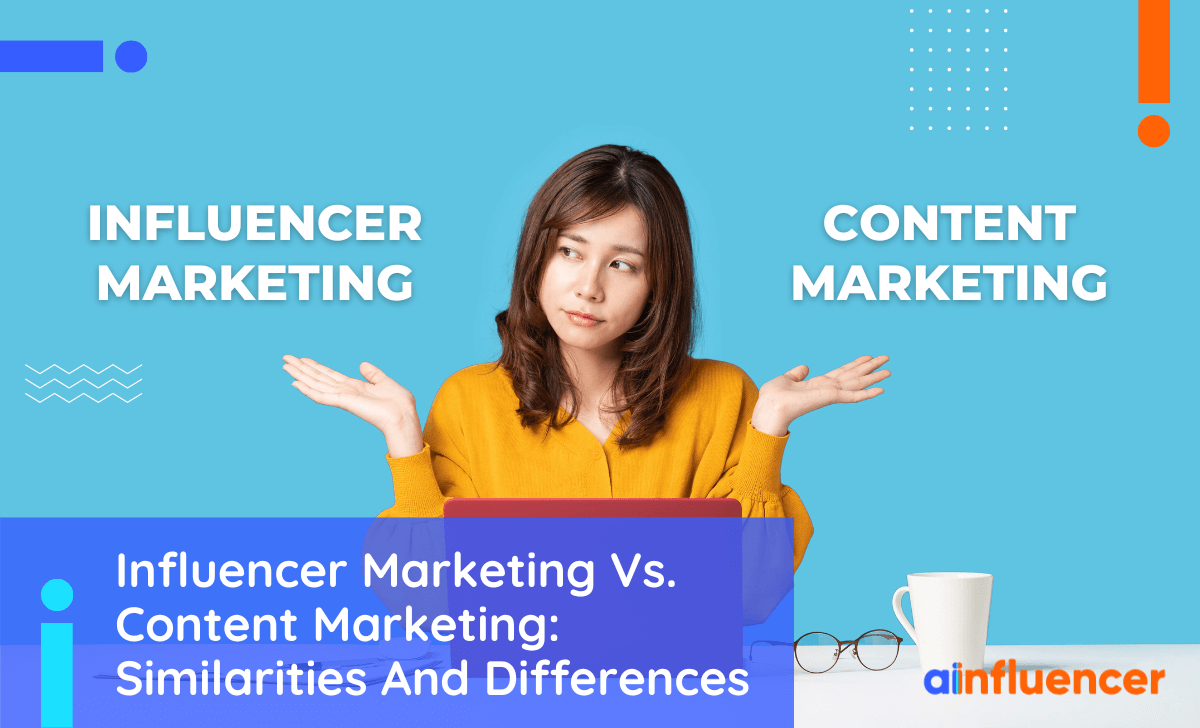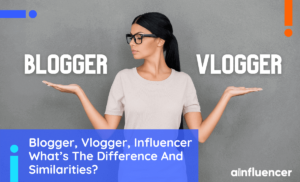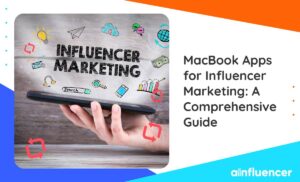Influencer marketing and content marketing are both forms of digital marketing, but they have some key differences.
Influencer marketing involves partnering with individuals who have a large following on social media or other platforms, and having them create content to promote a product or brand. The goal is to reach the influencer’s audience, who may be more likely to trust the product or brand because it is being endorsed by someone they follow and trust.
Content marketing, on the other hand, involves creating and distributing valuable, relevant, and consistent content to attract and engage a specific target audience. The goal is to educate and inform the audience, and ultimately drive profitable customer action.
Both influencer marketing and content marketing can be effective in reaching and engaging target audiences, but they may be best used in different situations. Influencer marketing is often used to generate buzz and drive sales, while content marketing is more focused on building relationships with customers and positioning a brand as an authority in its industry.
Influencer Marketing vs. Content Marketing: Comparison Chart
| Influencer Marketing | Content Marketing |
| Involves working with individuals with a strong online presence and a large following. | Involves creating and sharing valuable content that provides value to the audience. |
| The goal is to reach a larger audience and increase brand awareness and credibility. | The goal is to establish a brand as a thought leader and build relationships with the audience. |
| The brand has less control over the message and how it is presented. | The brand has more control over the message and how it is presented. |
| Focuses on driving sales and increasing brand awareness. | Focuses on building relationships with the audience and engaging with them over time. |
| Typically more expensive than content marketing. | Generally less expensive than influencer marketing. |
Please note that this is a general comparison and that some of the differences in the strategies can vary depending on the specific case.
What is Content Marketing?
Content marketing is a form of digital marketing that involves creating and distributing valuable, relevant, and consistent content to attract and engage a specific target audience.
The goal of content marketing is to educate and inform the audience and ultimately drive profitable customer action. This can be achieved by creating a variety of content such as blog posts, articles, videos, infographics, e-books, and more.
The idea is that by providing valuable and informative content, businesses can establish themselves as thought leaders in their industry, build trust and credibility with their target audience, and ultimately drive more sales and revenue. Content marketing is often used as a long-term strategy to build relationships with customers, rather than a short-term strategy to drive sales.
What is Influencer Marketing?
Influencer marketing is a form of marketing in which brands work with individuals who have a strong online presence and a sizable following, known as influencers, to promote their products or services.
Influencers typically use social media platforms like Instagram, TikTok, YouTube, and Twitter to share sponsored posts, create sponsored content, or host giveaways and contests on behalf of the brand. The goal of influencer marketing is to reach a larger audience and increase brand awareness and credibility through the endorsements of trusted individuals.
Note: If you are looking for a fast and easy way to take your influencer marketing campaigns to the next level, use a quality influencer marketplace like Ainfluencer.
Influencer acts as a middleman that helps both brands and influencers connect and collaborate.
With Ainfluencer, brands can simply search through thousands of qualified influencers in different categories and filter their search based on location, niche, language, gender, etc.

Once they choose their target influencer, they can send them a collab invitation, take advantage of the built-in chatbox to negotiate their terms, close deals, and access campaign analytics and campaign management features all in the app.
Difference between Influencer Marketing and Content Marketing
Influencer marketing and content marketing are both popular strategies used by brands to promote their products or services. Both strategies involve creating and sharing valuable content with the goal of increasing brand awareness and driving sales. However, there are some key differences between the two strategies.
Influencer marketing involves working with individuals who have a strong online presence and a large following. These individuals, known as influencers, typically use social media platforms to share sponsored posts, create sponsored content, or host giveaways and contests on behalf of the brand. The goal of influencer marketing is to reach a larger audience and increase brand awareness and credibility through the endorsements of trusted individuals.
Content marketing, on the other hand, involves creating and sharing valuable content that provides value to the audience without necessarily promoting a specific product or service. The goal of content marketing is to establish a brand as a thought leader in its industry and to build relationships with its audience. This can be done through a variety of channels such as blog posts, videos, infographics, white papers, ebooks, webinars, and more.
One of the main differences between influencer marketing and content marketing is the level of control that the brand has over the message. With influencer marketing, the brand relies on the influencer to deliver the message in their own words and style. This can be beneficial because it allows the brand to reach a new audience and tap into the influencer’s existing following. However, it also means that the brand has less control over the message and how it is presented.
With content marketing, the brand has more control over the message and how it is presented. The brand can create content that aligns with its overall marketing strategy and messaging, and can ensure that the content is delivered in a consistent and cohesive way. This can be beneficial because it allows the brand to build its own following and establish itself as a thought leader in its industry.
Another difference between the two strategies is the level of engagement. Influencer marketing typically focuses on driving sales and increasing brand awareness. The goal is to reach a new audience and drive conversions. On the other hand, content marketing focuses more on building relationships with the audience and engaging with them over time. The goal is to educate, inform and entertain the audience, and create a loyal following.
Additionally, influencer marketing is often more expensive than content marketing. Influencers typically charge a fee for their services, which can be based on a flat rate, a commission, or a combination of both. This can make influencer marketing more expensive than creating and distributing content in-house.
In conclusion, influencer marketing and content marketing are both effective strategies for promoting a brand, but they have different goals, require different levels of control, focus on a different level of engagement and have different costs. Brands should choose the brand advertising strategy that aligns best with their overall marketing goals and budget. Both strategies can complement each other and be used together to increase the reach and effectiveness of a brand’s marketing efforts.
The benefits of influencer marketing
There are several benefits of influencer marketing, including:

- Increased brand awareness: Influencer marketing allows brands to reach a larger audience and increase brand awareness through the endorsements of trusted individuals.
- Increased credibility: When a well-known influencer endorses a brand, it can lend credibility to the brand, and make it more trustworthy in the eyes of the audience.
- Increased engagement: Influencers have a dedicated following and their audiences are more likely to engage with the content they share, which can lead to increased brand engagement.
- Cost-effective: Influencer marketing can be more cost-effective than traditional forms of advertising, as brands can work with influencers who have a niche following that aligns with their target audience.
- Targeted reach: Brands can work with influencers who have a following that aligns with their target audience, which allows for more targeted reach and a higher likelihood of conversions.
- Authenticity: Influencer marketing allows brands to tap into the authenticity of the influencer, which can make the message more relatable and trustworthy.
- Improved SEO: Influencer marketing can help to improve a brand’s search engine optimization (SEO) as influencers can link back to the brand’s website, which can increase traffic and visibility.
- Better ROI: Influencer marketing can lead to a better return on investment (ROI) as it can drive conversions and increase brand awareness at the same time.
- Greater flexibility: Influencer marketing allows brands to get creative with their campaigns and to experiment with different types of content and formats.
- A sense of community: Influencer marketing can create a sense of community among the brand’s followers, as they can engage with the influencer and other followers in the comments section.
The Benefits of Content Marketing
There are several benefits of content marketing, including:

- Increased brand awareness: By creating and sharing valuable content, brands can increase brand awareness and establish themselves as thought leaders in their industry.
- Improved search engine rankings: Consistently creating and publishing valuable content can help to improve a brand’s search engine rankings and increase visibility.
- Increased website traffic: By providing valuable content, brands can attract and retain a larger audience, which can lead to increased website traffic.
- Higher conversion rates: By providing valuable information and building trust with their audience, brands can increase the likelihood of conversions.
- Cost-effective: Creating and distributing content in-house can be less expensive than traditional forms of advertising.
- Long-term benefits: Consistently creating and distributing valuable content can lead to long-term benefits, such as a larger and more engaged audience, increased brand awareness, and improved search engine rankings.
- Better customer understanding: By creating and distributing content that addresses customer pain points and answers their questions, brands can gain a better understanding of their customers.
- Lead generation: By providing valuable content in exchange for contact information, brands can generate leads and nurture them through the sales funnel.
- Establishing thought leadership: By creating and distributing high-quality content, brands can establish themselves as thought leaders and experts in their industry, which can lead to increased credibility and trust.
- Increased brand loyalty: By consistently providing valuable content, brands can build a loyal audience and improve customer retention.
Similarities between Content Marketing and Influencers
There are several similarities between content marketing and influencer marketing, including:
- Both strategies involve creating and sharing valuable content: Both content marketing and influencer marketing involve creating and sharing valuable content that provides value to the audience.
- Both strategies aim to increase brand awareness: Both content marketing and influencer marketing aim to increase brand awareness and reach a larger audience.
- Both strategies can drive conversions: By providing valuable information and building trust with the audience, both content marketing and influencer marketing can drive conversions.
- Both strategies involve building relationships: Both content marketing and influencer marketing involve building relationships with the audience and engaging with them over time.
- Both strategies involve storytelling: Both strategies involve using storytelling to create a connection with the audience and to promote the brand’s message.
- Both strategies can be used together: Both content marketing and influencer marketing can complement each other and be used together to increase the reach and effectiveness of a brand’s marketing efforts.
- Both strategies can be cost-effective: Both content marketing and influencer marketing can be cost-effective, as brands can create and distribute content in-house or work with influencers who have a niche following that aligns with their target audience.
- Both strategies can be measured: Both content marketing and influencer marketing campaigns can be measured and analyzed to understand the effectiveness of the campaign, the engagement, and the ROI.
- Both strategies require a good understanding of the target audience: Both content marketing and influencer marketing require a good understanding of the target audience in order to create content that resonates with them and aligns with their interests.
Conclusion
In conclusion, influencer marketing and content marketing are both powerful strategies for businesses to reach their target audience, but they have some distinct differences. Influencer marketing relies on the power of persuasion to persuade an audience, while content marketing relies on creating engaging content that attracts an audience. Content marketing takes more time to produce and is often less effective in the short term than influencer marketing, but it has a longer lasting impact and can be used to build customer loyalty over time.









